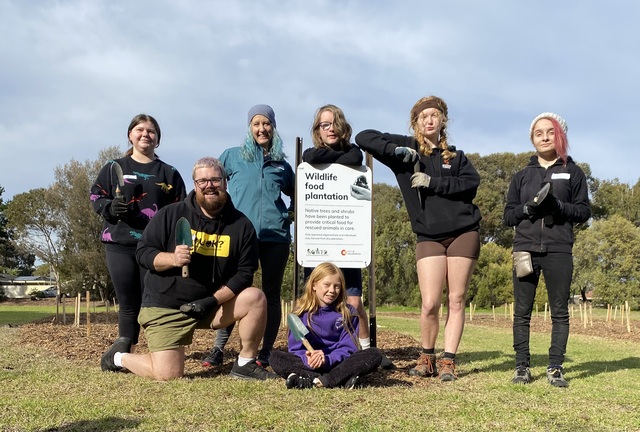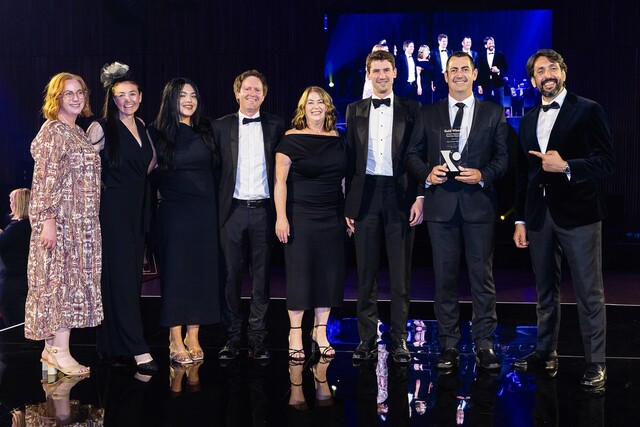A new wildlife-food plantation in Happy Valley in the City of Onkaparinga will help feed injured and displaced wildlife in care.
Carers can harvest leaves, blossoms, nuts and fruit of 14 native species chosen to cater to the specific needs of native animals and birds.
Planting at the Dawson Avenue reserve site began in mid-2024, with around 700 seedlings planted by 30 volunteers, including from Onkaparinga’s youth program and council staff. More seedlings and species will be planted soon.
The plantation was proposed by the Save Our Wildlife Foundation in a deputation to the Council in July 2022.
The specialised food is a boon to wildlife carers, not just the creatures in their care. Carers can spend significant time foraging for the right species.
While many rescued birds can be fed with food purchased from shops, this is harder for ‘fussy eaters’ such as koalas, possums and some nectar-eating birds that rely on native plants.
“This will make our work as rescuers and carers so much easier,” says the foundation’s Southern District Coordinator, Kendall Laffey.
“Imagine you rescue a little injured possum in the middle of a rainy night and you have to go out with a torch to search for the types of plants that the possum will eat so you can feed it.”
The council will continue working with the foundation and volunteers to further develop and maintain the plantation, says Nikola Manos, Onkaparinga’s Nature Conservation Project Officer.
“Some of the planted species are trees, but they’ll not end up looking like normal trees,” she says.
“With regular pruning and harvesting, these plants will grow bushier instead of tall, making it easier for volunteers to access the fresh growth, which is preferred by the animals.”
The plants are expected to take two to three years to mature before they can be harvested.

















